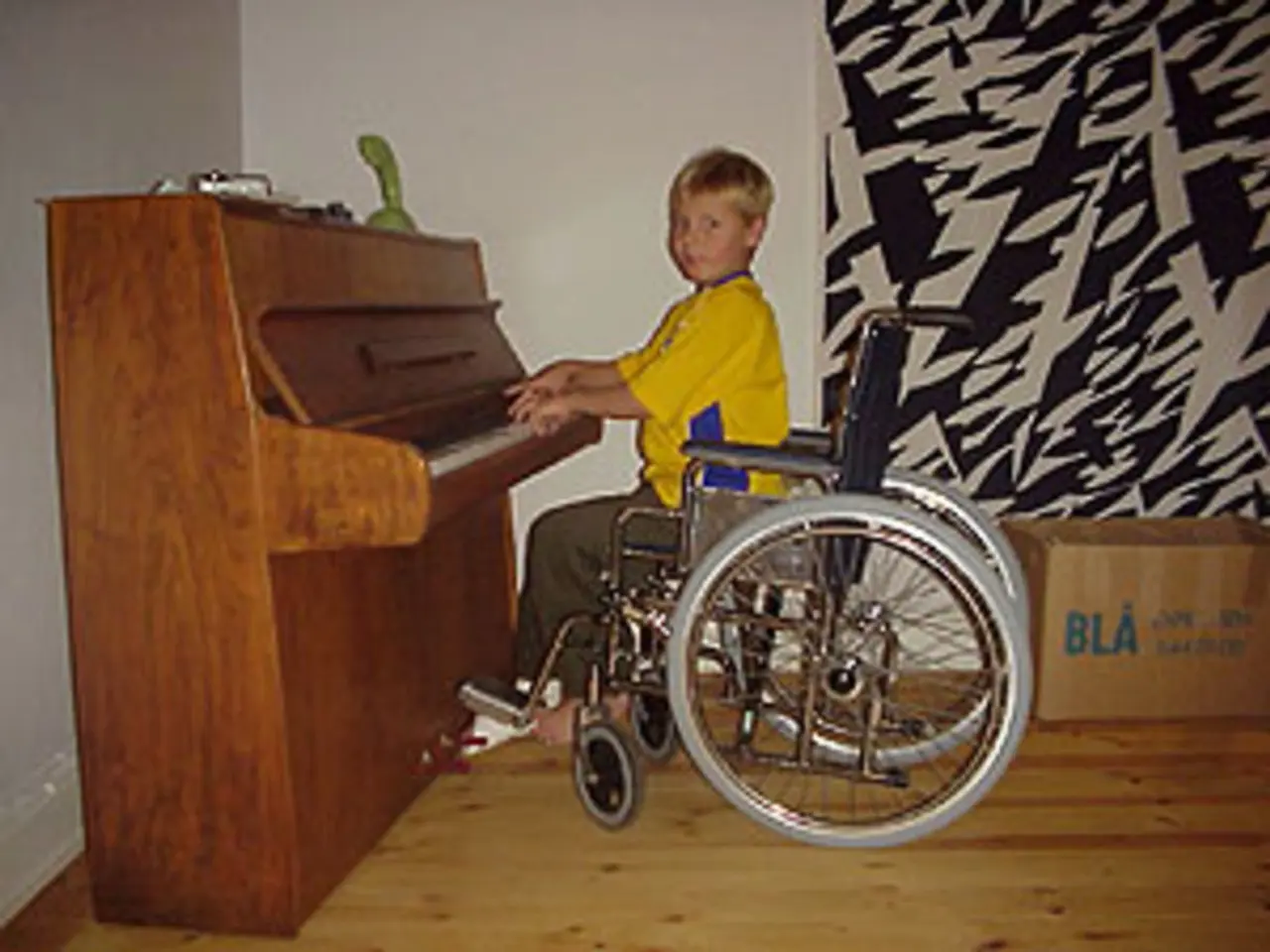Autism son's schooling concludes - uncertain future for Nikolai
In Stuttgart, Gabriele K. faces a unique challenge as she navigates the care and support of her son, Nikolai, who has an autism spectrum disorder (ASD). At the age of 25, Nikolai requires constant accompaniment due to his condition, which includes a tendency to run away and difficulty assessing dangers.
In December 2024, Gabriele K. applied for 150 hours of accompaniment for Nikolai per month at the social welfare office. However, the search for suitable facilities has proven challenging. Despite Stuttgart's offering of specialized residential and care facilities for adults with severe autism or other developmental disabilities, there are no direct listings for ASD adult facilities with a focus on managing elopement risks.
Common practices in Germany suggest that local organizations involved in disability support and autism care would typically offer or coordinate residential care homes, specialized day programs, and support services tailored to adults with ASD and behavioral challenges. These organizations often include municipal social services, health departments, and specialized autism support groups such as local chapters of the Autism Germany Association (Autismus Deutschland e.V.).
To find appropriate facilities in Stuttgart for adults with severe ASD and elopement risk, it is recommended to contact the regional Stuttgart office of Autismus Deutschland e.V. for guidance on specialized care homes. Reaching out to Stuttgart's Sozialamt (Social Welfare Office) or Gesundheitsamt (Health Department) can also provide lists of licensed residential care providers. Exploring services from large social institutions such as Diakonie, Caritas, or Lebenshilfe in Stuttgart, which often provide specialized residential care for adults with intellectual disabilities and autism, is another option.
For behavioral interventions, centers providing Applied Behavior Analysis (ABA) or cognitive behavioral support targeted at adults may reduce running away tendencies.
Nikolai's case stands out as he requires extensive support and care, and there are comparatively few places for such support. His last day of school at the Margarete-Steiff School in Stuttgart marked a significant step forward, as he is set to start in a support group at the Neckartal workshops in mid-September, making him the first client with permanent one-to-one support. The social affairs office has promised to review the need for Nikolai's accompaniment in the near future.
The challenges of raising an adult child with a disability are not unique to Gabriele K. and Nikolai. The transition to the "post-school area" is often challenging for families of children with disabilities, and the number of people with an ASD has been increasing worldwide for years.
In a heartwarming twist, another child with a disability, Alessandro, is mentioned as a phenomenon and full of surprises. Despite the challenges, the resilience and determination of families like Gabriele K. offer a testament to the strength and adaptability of the human spirit in the face of adversity.
- Gabriele K., in her pursuit of suitable facilities for Nikolai, a 25-year-old adult with autism spectrum disorder, could benefit from reaching out to the regional Stuttgart office of Autismus Deutschland e.V. for guidance on specialized care homes.
- To further address Nikolai's tendencies to run away, centers offering Applied Behavior Analysis (ABA) or cognitive behavioral support targeted at adults may potentially reduce these behaviors.
- Engaging in education-and-self-development programs focused on mental-health and health-and-wellness can offer reinforcement for Gabriele K., helping her navigate the unique challenges associated with her son's autism, and also as part of her career-development, she can learn strategies to better support Nikolai and others in similar situations.




